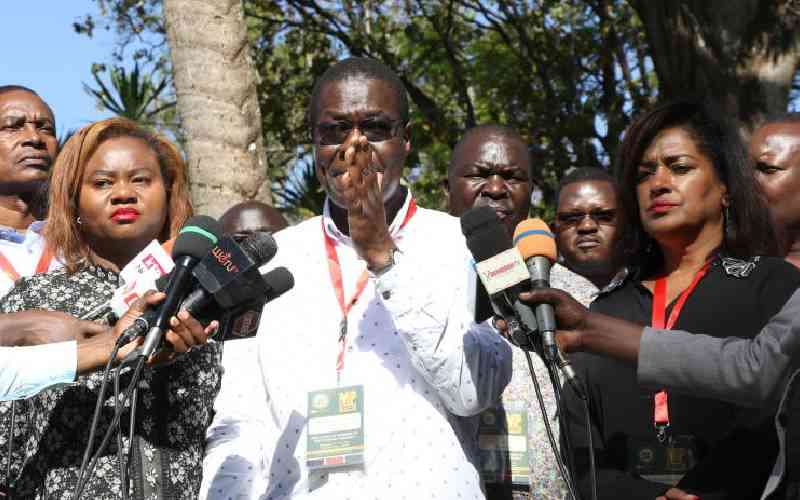
That the Azimio la Umoja One Kenya Alliance is tottering on the brink of collapse is not in doubt. What is in doubt is what next for its leaders Raila Odinga, Martha Karua and Kalonzo Musyoka. Also on the raft is former President Uhuru Kenyatta, who was styled as the Azimio chairman and manager of final resort.
The election loss has left the Uhuru-Raila outfit weak. The future is uncertain. Signs of unease and panic began showing early when on August 13, a precipitate presidential victory celebration, planned for the Kenyatta International Convention Centre (KICC), was quickly transformed into an introductory meeting for the coalition's victorious candidates in the August 9 elections.